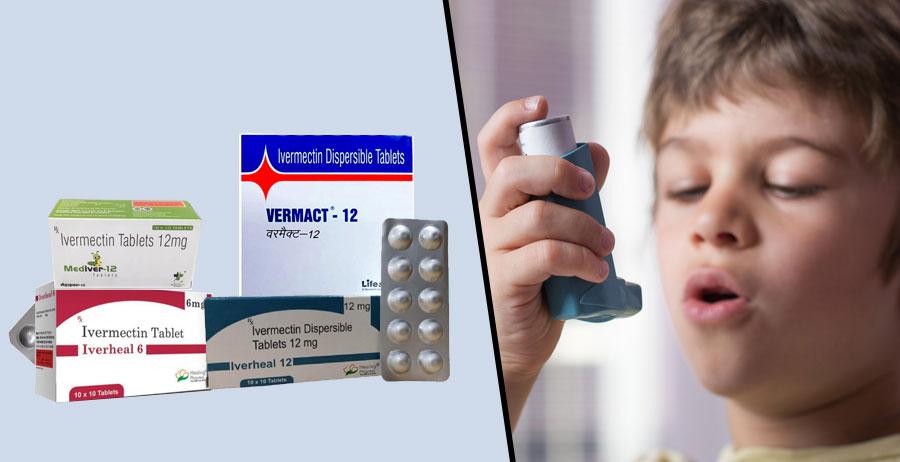Iverheal 12 mg is not FDA approved for treating COVID-19 patients. Ivermectin is best employed in patients who require COVID-19 treatment in a clinical research context, for example, in an ongoing clinical study.
Table of Contents
Iverheal 12 mg is not FDA approved for treating COVID-19 patients. Ivermectin is best employed in patients who require COVID-19 treatment in a clinical research context, for example, in an ongoing clinical study.
Ivermectin products suitable for use by animals are not to be used by human beings. Veterinary products are specifically designed for large animals and contain much more ivermectin levels than those that are approved for use by humans.
What is Ivermectin?
- Ivermectin tablets are currently an FDA-approved treatment of intestinal parasitic worms infections caused by parasites, Strongyloides the stercoralis as well as Onchocerca volvulus.
- Recently, ivermectin was researched to treat a variety of viruses.
- Clinical studies have been conducted on individuals to determine if Ivermectin can be used to treat COVID-19. At present, there is only a small amount of evidence that Ivermectin is effective in treating COVID-19. further studies are required.
- Ivermectin is safe for human use, but only at the dose recommended.
- SARS-CoV-2 (severe acute respiratory syndrome coronavirus) is the virus responsible for COVID-19 (coronavirus disease 2019)
Is Ivermectin a medicine that has been approved by the FDA?
Ivermectin tablets ( Stromectol) is an FDA-approved medication for the treatment of intestinal parasites Strongyloides Stecoralisand Onchocerca volvulus.
Iversun 12mg cream 1.1% (Soolantra) can be FDA approved to treat Rosacea.
Ivermectin has not been FDA-cleared to treat COVID-19.
Ivermectin tablets can also be used off-label for a range of other ailments.
Ivermectin is a drug intended for use by animals and should not be used by humans.
The WHO Living guideline for COVID-19 and Therapeutics: Ivermectin
The WHO Therapeutics and COVID-19 living guidelines are the WHO’s (WHO) most current guidelines for treatment for COVID-19.
The recommendation of the group is that ivermectin is not used in patients suffering from COVID-19, unless within a research setting in a clinical study.
This recommendation comes as a result of a thorough review of clinical trials that were randomized and employed ivermectin to treat COVID-19. After reviewing the results of the studies they have concluded that there’s a large amount of doubt about whether ivermectin can be beneficial or harmful when treating COVID-19.
The uncertainty of some of the Ivermectin trials for COVID-19 is due
- significant risk of bias
- the risk of imprecision is very high.
There are fewer randomized controlled trials (RCT) on ivermectin when compared to other COVID-19 treatment options. The RCT for ivermectin comprised numerous small trials, which included fewer participants and had fewer events recorded.
More RCTs are required with better quality evidence to establish if ivermectin can be effective in treating COVID-19.
The NIH COVID-19 Treatment Guidelines: Ivermectin
The NIH COVID-19 Treatment Guidelines are one of the National Institutes of Health (NIH) most current recommendations for treatment for COVID-19.
The NHI panel advises against Ivermectin’s use in COVID-19 treatment, only in clinical trials.
The panel examined a range of studies prior to making the recommendation. Studies show a wide range of outcomes following the use of ivecop 12 mg, ranging from no benefit or worsening of the disease to less time for resolving symptoms of COVID-19, and reduced mortality. The panel found that the majority of these studies showed:
- insufficient information
- Significant methodological limitations (small sample size important methodological limitations (inconsistent dose and dosing schedules open label studies other medications that are taken in conjunction with the severity of COVID-19 is not specified outcomes measures that are not defined clearly).
There are more recent studies in clinical trials (TOGETHER trial I-TECH trial EPIC trial) that have addressed the shortcomings of earlier studies on ivermectin. The newer studies have not been able to provide clear evidence that ivermectin slows the time to recover or stops the progression of COVID-19.
The NIH added that there are currently a number of medicines available that have been shown to have clinical benefits in COVID-19 treatment.
It is expected that the NIH panel will examine new data on the use of Ivermectin for COVID-19. This includes outcomes expected from two massive ongoing randomized controlled studies.
The IVERCOR-COVID-19 trial
The IVERCOR-COVID-19 study was a double-blind, randomized placebo-controlled trial that involved more than 501 patients. The purpose of the trial was to find out if the treatment with ivermectin could reduce the hospitalization of patients with COVID-19 which was in its early stages. A group of patients received Ivermectin in addition to standard treatment, while the other group received a placebo using standard treatment. Patients were not allowed to consume chloroquine, hydroxychloroquine, or antiviral medicines.
The trial’s results were published on the 2nd of July 2021. They showed that
- The percentage of patients who required hospitalization was 5.6 percent in the Ivermectin treatment group and 8.4 percent for the control group however the difference between the two groups was not statistically significant.
- It was no significant statistical differences in the median duration from enrollment of patients to hospitalization among the two treatment groups. The median ivermectin treatment group period from enrollment to the hospital was 3.5 days versus 3 days.
- It was not a statistically significant distinction in the time period from enrollment into the study until the patient was placed on invasive mechanical ventilation assistance (VMS). Ivermectin treatment was 5.25 days as opposed to the control group, which had a duration of 10 days.
The research’s shortcomings were highlighted as follows:
- The hospitalization rate is low for patients with a low percentage
- The sample of people included middle-aged people who were hospitalized less than the set threshold of 10 percent
- Ivermectin Blood levels weren’t measured, therefore it is unclear whether a therapeutic level was achieved or exceeded.
- There was no way to measure the severity of COVID-19 disease.
PRINCIPLE TRIAL
It is currently a trial that studies treatments for COVID-19 patients within communities who’re at risk of developing serious diseases. The study is examining several different treatment options like Ivermectin.
Participants in the ivermectin component of the study will be:
- between the ages of 18 and 64 years old
- with an underlying health issue or breath shortness caused by COVID-19
- Must join the trial within the first 14 days following the onset of symptoms or after a positive test.
- The patient will receive three days of oral Ivermectin treatment
- They will be compared to those receiving the standard NHS COVID-19 treatment.
The ivermectin portion of the trial began in June 2021. Results will be announced when they become the results are made available.
What exactly do I know if Ivermectin is supposed to be working on COVID-19?
- To be able to infect you the virus must first infect your body cells.
- This cell produces many duplicates of it, which means it is able to spread across the body.
- The virus also has methods to reduce the way in which your body fights disease.
- When an infection is affecting the cell, virus proteins are released into the cell’s nucleus, and there they are able to hinder the body’s ability to fight the virus meaning that the virus could get worse.
- In order to enter the nucleus the viral proteins must connect to a cargo transporter that allows them into.
- Ivermectin might hinder the cargo transporter, which means that the virus’s proteins will not be able to enter the nuclear sphere. This is why some researchers believe that Ivermectin could be able to fight SARS-CoV-2.
- When you take Ivermectin, it is believed that the body is able to fight off the infection as normally as its antiviral reaction is not affected by viral proteins.





More Stories
The Right Plastic Surgeon and Botox Treatment in Mission Viejo CA
The Ultimate Guide to Spa and Salon Massage Tables
Why Should You Consider a Couples Retreat? A Full Guide to Marriage Retreats